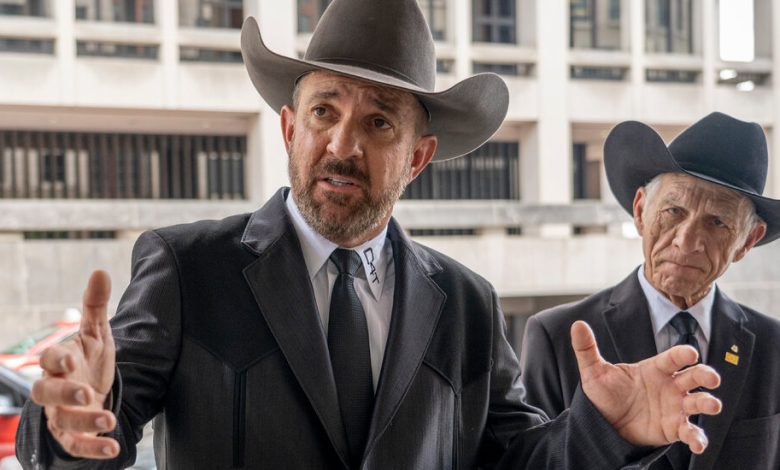Supreme Court Lets Public Office Ban Stand for ‘Cowboys for Trump’ Founder

The U.S. Supreme Court turned down a request on Monday to hear an appeal from a former New Mexico county commissioner who was removed from office after taking part in the Jan. 6 riots at the Capitol.
Couy Griffin, formerly a commissioner in New Mexico’s Otero County and the founder of “Cowboys for Trump,” was convicted in 2022 of trespassing at the Capitol. That same year, Mr. Griffin became the first public official in more than a century to be disqualified because of a constitutional ban on insurrectionists holding office contained in a provision of the 14th Amendment.
As is its custom, the court gave no reasons for turning away the appeal. The order on Monday means that Mr. Griffin will remain barred from running or holding public office in New Mexico.
The Supreme Court declined to hear Mr. Griffin’s appeal two weeks after it said Colorado could not use that same provision to stop former President Donald J. Trump from appearing on the state’s presidential primary ballot. The Colorado Supreme Court — taking on a case that was brought by six Colorado voters — had ruled in December that Mr. Trump had engaged in insurrection and was barred from holding public office.
In overturning that decision, the nine justices unanimously sided with Mr. Trump, saying states could not bar presidential candidates from ballots, though there was disagreement among the justices as to the scope of what the ruling should have addressed. The majority said that Congress was responsible for enforcing the provision against federal officeholders and candidates.
In simply letting the New Mexico ban stand, the court left some questions unresolved.
Mr. Griffin’s lawyer, Peter Ticktin, said he believed the court’s order means his client remains banned for life from state and federal office. “This puts Couy in a class of his own,” Mr. Ticktin said. “He is the only American to have been removed from office based on the 14th Amendment, and we are looking to see if there is a way to return to the courts of New Mexico so that justice can be done.”




